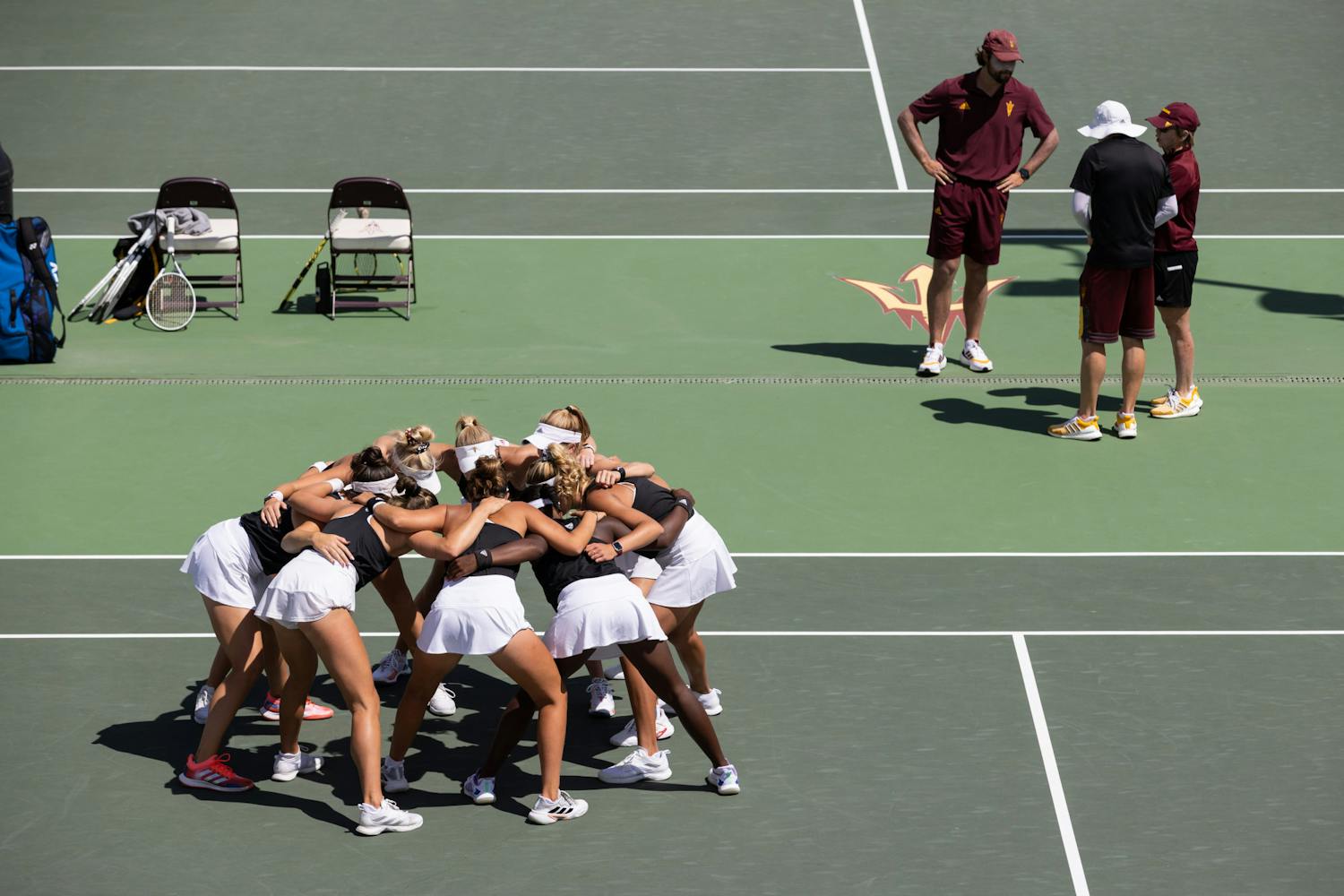In American culture, there are some things that seem to always go with the Super Bowl. Buffalo wings, sports jerseys, outlandish commercials and light beer are just a few of the items on that list, though an ASU research team is investigating a potentially new addition: sex trafficking.
The project is led by Dominique Roe-Sepowitz, director of the Office of Sex Trafficking Research and a professor in the School of Social Work. She said although she tries not to exaggerate the pathos element of her research, the horrors of sex trafficking and its effects on minors simply can’t be ignored.
“It’s a terrible tragedy, what these people go through, so the volume of minors we found was heart-wrenching and horrifying,” she said. “(These cases) involve domestic violence, sexual assault, physical violence, emotional violence and they are not consenting adults. It’s like all the bad things that can happen to a person pooled in one.”
The project is a partnership between ASU, the McCain Institute, the Phoenix Police Department and Praescient Analytics, an intelligence contractor that usually gathers information for secret military and criminal activity. Her research team includes 11 student researchers and Lt. Jim Gallagher of the Phoenix Police Department.
Together the team has completed more than 200 hours of research in four months.
Roe-Sepowitz said the project’s foremost objective is to help minors who are being trafficked, though her team also wishes to understand how large events affect trafficking patterns.
The team is looking to discover if the higher concentration of tourists means a higher demand for prostitution. Prostitutes are usually trafficked from city to city and often state to state to meet demand and for their traffickers to remain undetected.
“The goal is to identify minors and trafficking victims," Roe-Sepowitz said. "That’s the bottom line. But the larger goal is to understand sex trafficking when a large event happens. … Research hasn't been clear if it has any effect at all. (But) we know that where money is and where men are, and they're away from home, the likelihood of engaging in prostitution is higher.”
She also discussed what her team’s findings could mean on a smaller scale, as Glendale prepares to host Super Bowl XLIX in 2015.
“This will hopefully give us quite a bit of information about trafficking, about Internet involvement and the movement of victims and the behavior of customers so we can be better prepared,” she said. “I hope to present this to the city of Phoenix Mayor’s Super Bowl Task Force here, and hopefully it will give us some direction on what we need to do (and) how big the problem is.”
She said this project is the only office in the country that specifically focuses on sex trafficking, and that she plans to present her findings to policymakers as soon as the results are available, likely within a few weeks.
Kristen Bracy, a social justice and human rights graduate student, is the project manager under Roe-Sepowitz. She said this project has a unique goal of bringing attention to domestic sex trafficking, as she feels many Americans are aware of the trafficking that happens internationally, but most don’t consider that it happens in their own backyards as well.
“I’m passionate about domestic human trafficking, because a lot of people are focused on international trafficking,” she said. “I think domestic trafficking victims are pushed to the edge of society and are kind of invisible, and they don’t really have a voice. No one really cares. They need an advocate. They need people who are willing to try to help them and provide them with services to better their lives and get out of a position they potentially don’t want to be in.”
Beyond raising awareness, Bracy said Americans need information to also change their mindsets about the way they see prostitution.
“I think we’re hoping to reframe the way people see prostitution in the U.S.,” she said. “We’re trying to reframe the way people look at the industry and how they glamorize that type of life. We’re hoping to change the way people see prostituted individuals so they can be decriminalized and gain more access to services and protection.”
Psychology senior Emma Wille, another team member, said she was drawn to work on the project to further explore the experiences of this vulnerable population. She also said the research, which typically involves searching and documenting prostitution Internet ads, can often be depressing.
“Seeing the ads every day has a psychological toll,” she said. “When you're spending seven hours a day (online), it can take an emotional toll … It definitely changes the way you see people and the way you see ads.”
Despite this toll, Wille said she continues to persevere with the project because of the positive change she knows it will create.
“I think that it’s a giant learning experience, because you're in the seedy underbelly of the Internet, and it gives you context for what these women have to do to sell themselves,” she said. “It’s definitely a perspective-changer. … It’s nice, knowing that we’re actually doing something about it makes it worth it, and knowing that something’s being done.
Reach the reporter at elmahone@asu.edu or follow her on Twitter @mahoneysthename



